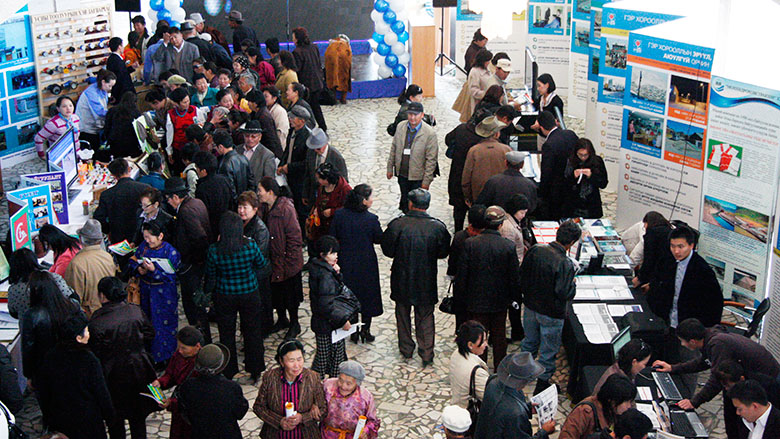WASHINGTON, April 27, 2017 – The World Bank’s Executive Board of Directors today approved $25 million in financing to help job seekers and micro-entrepreneurs in Mongolia access labor market opportunities.
WASHINGTON, April 27, 2017 – The World Bank’s Executive Board of Directors today approved $25 million in financing to help job seekers and micro-entrepreneurs in Mongolia access labor market opportunities.

“Improving access to labor market opportunities is one of the key steps to help people get good jobs and improve their livelihoods. Through this project, the World Bank is helping the government of Mongolia to address major constraints facing Mongolia’s labor market through supporting micro-entrepreneurs, upgrading public employment services, better aligning employment training programs with labor demand, and improving the quality and availability of labor market information,” said James Anderson, World Bank Country Manager for Mongolia.
In Mongolia, generally poor labor market outcomes are a major concern with relatively high unemployment and growing numbers of discouraged workers that have given up looking for a job. Meanwhile, jobs and poverty are closely linked as poverty incidence is the highest among those without productive and well-paying jobs.
The Mongolia Employment Support Project aims to provide new opportunities for people to start and grow sustainable microenterprises. The comprehensive support will include a range of non-financial support services, including business skills and development training, mentoring, peer-to-peer and alumni networks, and market linkages. It will also include financial support such as microloans for new and existing microenterprises, supplemented by interest rate relief for the most vulnerable beneficiaries.
The project will strengthen client-centric public employment services to help them become more effective in achieving quality job placements and attract more employers and listings for higher-skilled jobs. In addition, it will support employment trainings better matched with labor demand, while local labor and social welfare offices will be given the opportunity to develop and implement their own labor market proposals appropriate for the local context. To improve labor market transparency, the scope and quality of information on the labor market and jobs will be upgraded to better connect individual job seekers to employers, and enhance labor market monitoring and evaluation.
The recent slowdown in Mongolia’s growth due to lower commodities prices and slower growth in China has brought a significant decline in jobs and a rapid rise in unemployment. Even during the economic boom between 2010 and 2014, the unemployment rate stayed relatively elevated and rarely dropped below 7 percent. Informal employment – often through low-level self-employment –also continues to be widespread. Informal jobs and unemployment are particularly common for a number of specific vulnerable groups, and the project puts a particular emphasis on supporting such groups, including citizens having difficulty finding employment, young people of ages 18 to 34 and poor households.
The project will be implemented by the Ministry of Labor and Social Protection of Mongolia. It is funded with a $25 million credit from the World Bank’s International Development Association.

